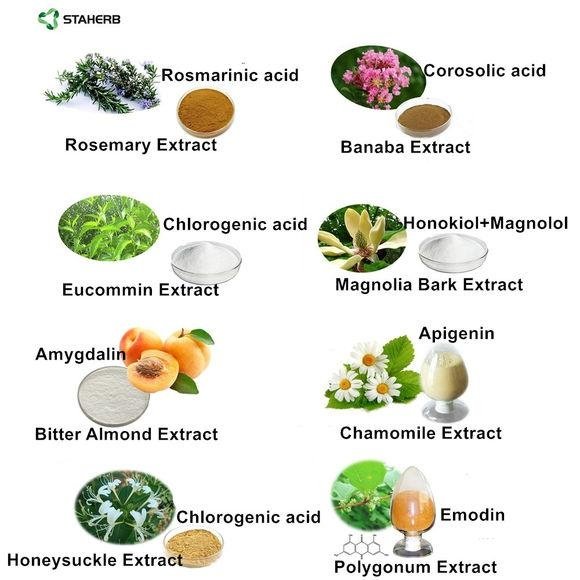-
1.Aula N, Salomaki P, Timonen R, Verheijen F, Mancini G, Mansson JE, Aula P, Peltonen L (2000) The spectrum of SLC17A5-gene mutations resulting in free sialic acid-storage diseases indicates some genotype-phenotype correlation. Am J Hum Genet 67:832–840
-
2.Aula P, Autio S, Raivio KO, Rapola J, Thoden CJ, Koskela SL, Yamashina I (1979) “Salla disease”: a new lysosomal storage disorder. Arch Neurol 36:88–94
-
3.Aula P, Gahl WA (2001) Disorders of free sialic acid storage. In: Scriver CR, Beaudet AL, Sly WS, Valle D (eds) The Metabolic and Molecular Bases of Inherited Disease. New York, McGraw Hill, pp 5109–5120
-
4.Cardo PP, Lombardo C, Gatti R (1985) A simple detection of sialic acid storage disorders by urinary ‘free’ and ‘total’ sialic acid determinations. Clin Chim Acta 150:129–135
-
5.Denny PC, Denny PA, Allerton SE (1983) Determination of sialic acid using 2-thiobarbituric acid in the absence of hazardous sodium arsenite. Clin Chim Acta 131:333–336
-
6.Froissart R, Cheillan D, Bouvier R, Tourret S, Bonnet V, Piraud M, Maire I (2005) Clinical, morphological, and molecular aspects of sialic acid storage disease manifesting in utero. J Med Genet 42:829–836
-
7.Galjaard H (1980) Genetic Metabolic Diseases. Elsevier/North-Holland Biomedical, Amsterdam
-
8.Grosso S, Berardi R, Farnetani MA, Margollicci M, Mancini MG, Morgese G, Balestri P (2001) Multiple neuroendocrine disorder in Salla disease. J Child Neurol 16:775–777
-
9.Ito M, Ikeda K, Suzuki Y, Tanaka K, Saito M (2002) An improved fluorometric high-performance liquid chromatography method for sialic acid determination: an internal standard method and its application to sialic acid analysis of human apolipoprotein E. Anal Biochem 300:260–266
-
10.Krasnewich DM, Tietze F, Krause W, Pretzlaff R, Wenger DA, Diwadkar V, Gahl WA (1993) Clinical and biochemical studies in an American child with sialuria. Biochem Med Metab Biol 49:90–96
-
11.Mancini GM, Beerens CE, Aula PP, Verheijen FW (1991) Sialic acid storage diseases. A multiple lysosomal transport defect for acidic monosaccharides. J Clin Invest 87:1329–1335
-
12.Mancini GM, Hu P, Verheijen FW, van Diggelen OP, Janse HC, Kleijer WJ, Beemer FA, Jennekens FG (1992) Salla disease variant in a Dutch patient. Potential value of polymorphonuclear leucocytes for heterozygote detection. Eur J Pediatr 151:590–595
-
13.Powell LD, Hart GW (1986) Quantitation of picomole levels of N-acetyl- and N-glycolylneuraminic acids by a HPLC-adaptation of the thiobarbituric acid assay. Anal Biochem 157:179–185
-
14.Roboz J, Suttajit M, Bekesi JG (1981) Elimination of 2-deoxyribose interference in the thiobarbituric acid determination of N-acetylneuraminic acid in tumor cells by pH-dependent extraction with cyclohexanone. Anal Biochem 110:380–388
-
15.Seppala R, Lehto VP, Gahl WA (1999) Mutations in the human UDP-N-acetylglucosamine 2-epimerase gene define the disease sialuria and the allosteric site of the enzyme. Am J Hum Genet 64:1563–1569
-
16.Sewell AC, Poets CF, Degen I, Stoss H, Pontz BF (1996) The spectrum of free neuraminic acid storage disease in childhood: clinical, morphological and biochemical observations in three non-Finnish patients. Am J Med Genet 63:203–208
-
17.Schauer R (2000) Achievements and challenges of sialic acid research. Glycoconj J 17:485–499
-
18.Traving C, Schauer R (1998) Structure, function and metabolism of sialic acids. Cell Mol Life Sci 54:1330–1349
-
19.Valianpour F, Abeling NG, Duran M, Huijmans JG, Kulik W (2004) Quantification of free sialic acid in urine by HPLC-electrospray tandem mass spectrometry: a tool for the diagnosis of sialic acid storage disease. Clin Chem 50:403–409
-
20.Verheijen FW, Verbeek E, Aula N, Beerens CE, Havelaar AC, Joosse M, Peltonen L, Aula P, Galjaard H, van der Spek PJ, Mancini GM (1999) A new gene, encoding an anion transporter, is mutated in sialic acid storage diseases. Nat Genet 23:462–465
-
21.Verheijen FW, Mancini GM (2003) Lysosomal sialic acid transporter sialin (SLC17A5):sialic acid storage disease (SASD). In: Broer S, Wagner CA (eds) Membrane Transporter Diseases. Kluwer Academic/Plenum, New York, pp 233–239
-
22.Warren L (1959) The thiobarbituric acid assay of sialic acids. J Biol Chem 234:1971–1975
-
23.Waters PJ, Lewry E, Pennock CA (1992) Measurement of sialic acid in serum and urine: clinical applications and limitations. Ann Clin Biochem 29:625–637
-

唾液酸,燕窩酸
品名:燕窩酸
其他名稱: N-Acetylneuraminic Acid, Neu5Ac, NANA Powder
CAS 號.:131-48-6
純度:98% min
分子量:309.2699
外觀:Whiter powder

唾液酸是9-碳單糖的衍生物,學名叫作“N-乙酰基神經氨酸”,是一種天然存在的碳水化合物。它最初由頜下腺粘蛋白中分離而出,也因此而得名。
唾液酸通常以低聚糖,糖脂或者糖蛋白的形式存在。人體中,腦的唾液酸含量 。腦灰質中的唾液酸含量是肝、肺等內臟 的15倍。唾液酸的主要食物來源是母乳,也存在於牛奶、雞蛋和奶酪中。
唾液酸可以阻止病菌入侵,唾液酸同時也是流感病毒的受體,是流感病毒結合在黏液細胞中的結合位點。
產品詳詢:13657416805
